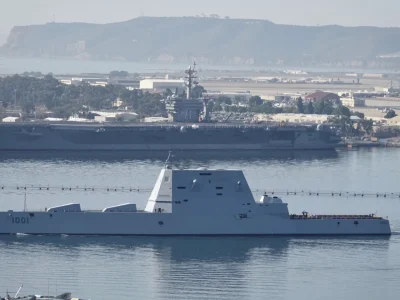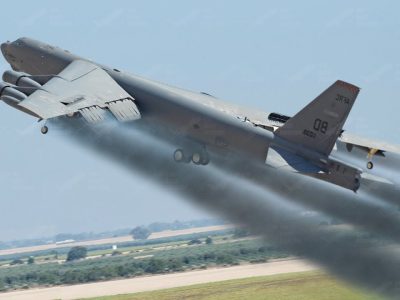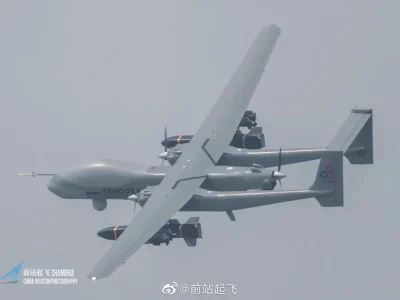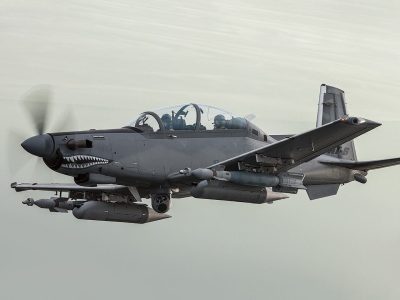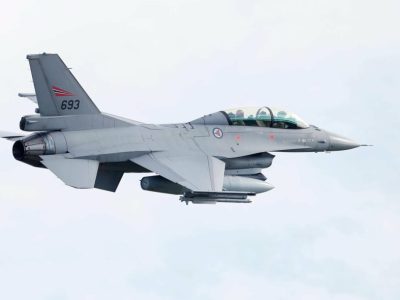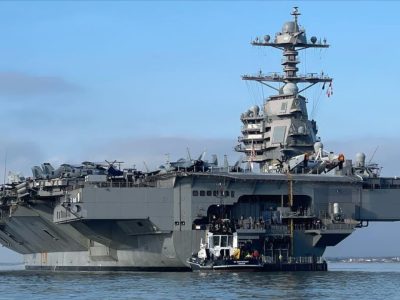
A Sikorsk CH-53K King Stallion heavy lift helicopter from Marine Operational Test and Evaluation Squadron (VMX) performed an external load certification lift of an inoperable F-35 Lightning II airframe in December at Naval Air Station (NAS) Patuxent River, Maryland. The lift was to evaluate the load and inform future lift capabilities. The CH-53K is the most powerful helicopter ever developed by the United States government. This new-build helicopter will continue to fill the CH-53E Super Stallion mission as a pillar of logistics and assault support for the U.S. Marine Corps efforts, but with significant improvements such as state-of-the-art, fly-by-wire technology reducing pilot work load, contributing to aircraft stability, and improving overall safety. The recent full rate production decision for the CH-53K is validation of the aircraft’s value to the U.S. Marine Corps and last month’s test lift is one more demonstration of its performance and reliability.
The CH-53K King Stallion has been designed to provide increased lifting capabilities compared to its predecessor, the CH-53E Super Stallion. It is capable of carrying heavy loads and operating in challenging environments, making it suitable for various missions such as troop transport, equipment delivery, and disaster response.
The external load test you mentioned, where the CH-53K King Stallion lifts a non-flyable F-35C fighter, demonstrates the helicopter’s ability to transport large and heavy objects externally. This capability is crucial for scenarios where conventional loading methods are not feasible or efficient.
Such tests are conducted to assess the helicopter’s performance, stability, and safety during external load operations. They also validate the helicopter’s capabilities and provide valuable data for operational planning.
For more detailed and up-to-date information on the CH-53K King Stallion’s external load test with the F-35C fighter, I recommend referring to official statements or publications from Sikorsky, the U.S. Marine Corps, or other reputable defense industry sources. These sources should provide comprehensive information on the test, including its purpose, methodology, and outcomes.
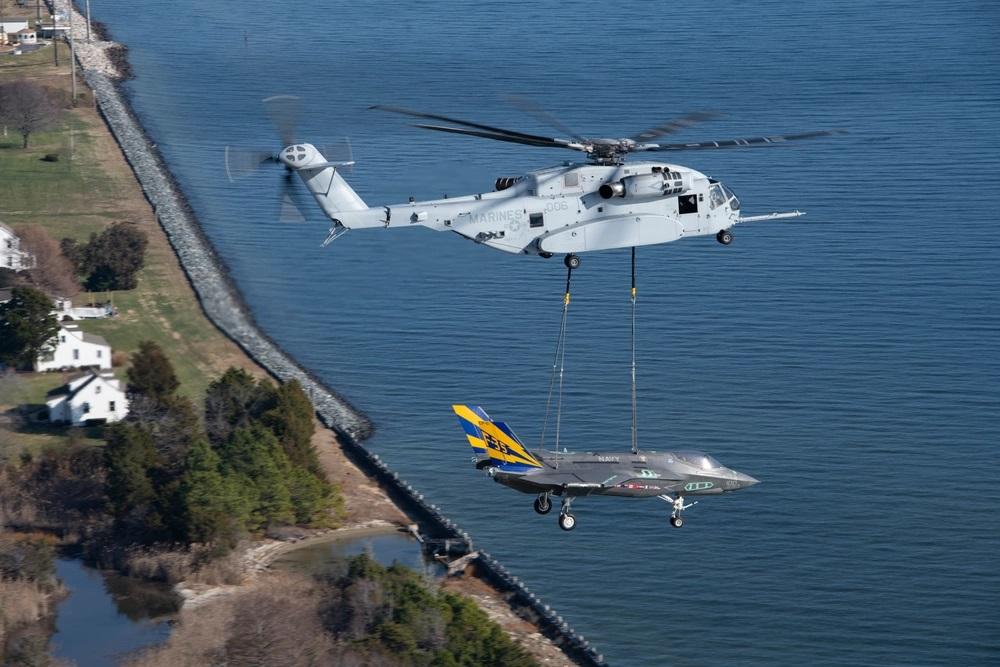
The NAS Patuxent River F-35 Integrated Test Force (ITF) test team, Naval Air Wαяfare Center Aircraft Division (NAWCAD) Cargo Lab, and others ensured a successful lift and flight by conducting load certification testing, sling configuration analysis, and cargo characteristics documentation were completed as required. Data from the tests will inform the flight envelope for future events. An earlier crane test lift verified the sling, rig, pitch and bank attitudes of the jet, and control surface states. The aircraft lifted is a developmental test carrier variant F-35C fighter jet that had accrued 750 flight hours during 450 test flights between 2010 and 2016. The F-35C and rigging weighed about 22,000 pounds after removal of its mission and propulsion systems, outer wings, and additional equipment. The CH-53K is currently cleared to conduct a 27,000-pound external lift and is projected to be cleared for a 36,000-pound external lift, nearly three-times more under high, hot conditions than its predecessor, the CH-53E.
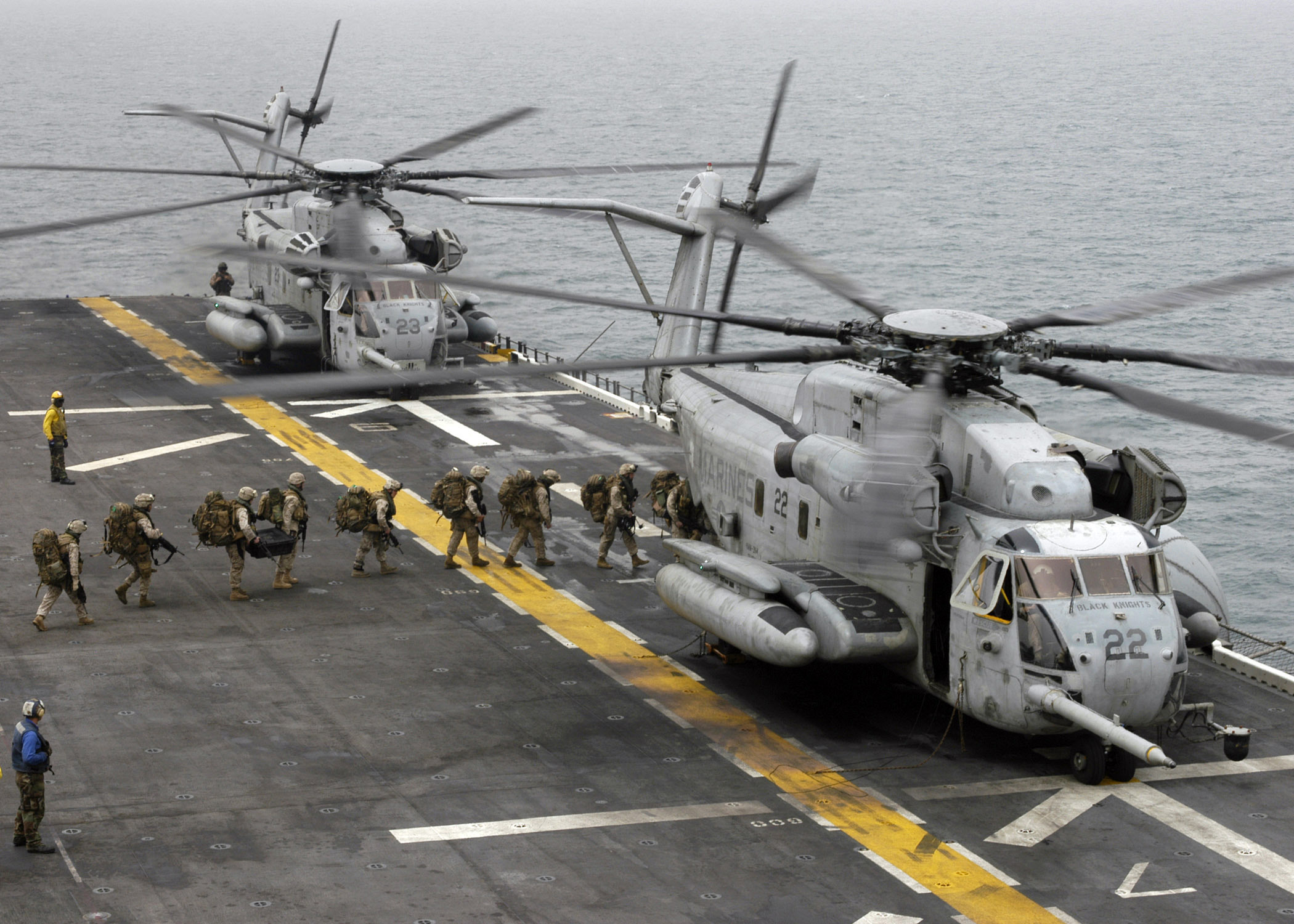
In September 2021, the CH-53K performed its first operational mission by lifting a Navy MH-60S Knighthawk helicopter from a 12,000-foot mountain top in California. That aircraft weighed approximately 15,000 pounds and was successfully transported 23 miles to Fallon, NV. The CH-53K entered its full rate production and deployment phase in December and is on schedule to declare Full Operational Capability in FY2029. The F-35 Lightning II Joint Program Office (JPO) leads the life-cycle program management of the F-35A, F-35B, and F-35C; the fifth-generation joint strike fighter (JSF) air system of choice for the U.S. Air Force, U.S. Navy, U.S. Marine Corps, international partners and foreign military sales customers. Heavy Lift Helicopter Program Office (PMA-261) manages the cradle-to-grave procurement, development, support, fielding and disposal of the entire family of H-53 heavy lift helicopters.
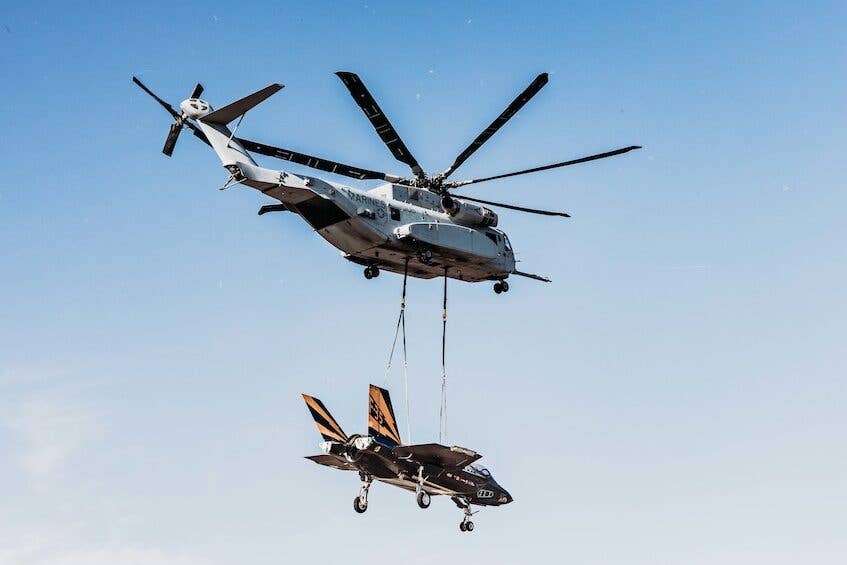
The Sikorsky CH-53K King Stallion (Sikorsky S-95) is a heavy-lift cargo helicopter designed and produced by Sikorsky Aircraft. The King Stallion is an evolution of the long running CH-53 series of helicopters which have been in continuous service since 1966, and features three uprated 7,500 shp (5,590 kW) engines, new composite rotor blades, and a wider aircraft cabin than its predecessors. It is the largest and heaviest helicopter in the U.S. military. The United States Marine Corps plans to receive 200 helicopters at a total cost of $25 billion. Ground Test Vehicle (GTV) testing started in April 2014; flight testing began with the maiden flight on 27 October 2015. In May 2018, the first CH-53K was delivered to the Marine Corps. On 22 April 2022, it was declared to have passed initial operational capability. Israel has also reportedly ordered the type; other potential export customers include Japan and Germany.
